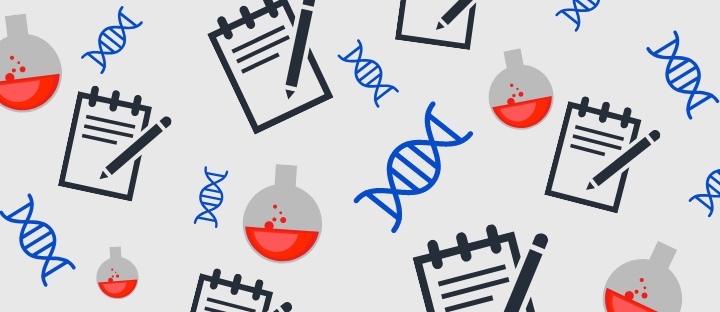#ScienceSaturday posts share relevant and exciting scientific news with the KAND community, and are compiled by Alejandro Doval. Alejandro is from Spain and serves as Team Leader of the KIF1A.ORG parent-led Research Engagement Team. Send news suggestions to our team at impact@kif1a.org.
KIF1A News
NEXT: Luke Rosen, KIF1A.org, Discusses the Future of Rare Disease
KIF1A.ORG co-founder Luke Rosen spoke with Global Genes about the importance of families engaging in scientific research and the imperative to act with urgency and collaboration on our path to treatment.
“Infusing what matters most to the families is the future of how we’re going to efficiently create therapeutics and get people access to medicines they need so badly.”
Luke Rosen, KIF1A.ORG Co-Founder
Rare Disease News
First CRISPR treatment for blood diseases shows early benefits in two patients
“Billions of cells that were genetically modified with the powerful gene-editing technique called CRISPR have started working, as doctors had hoped, inside the body of the first sickle cell patient to receive the experimental treatment … ‘This is the first evidence that in people the new CRISPR technology has the potential to be curative for serious genetic diseases,’ said Dr. David Altshuler, the chief scientific officer at Vertex.”
We cannot understate the significance of this development. This trial shows for the first time that CRISPR has the potential to cure genetic diseases in humans. We are witnessing the dawn of technology that has real potential to cure KAND.
Two Huntington’s Disease Trials
Ground-Breaking Study for Huntington’s Disease Under Way
“This international collaborative trial, sponsored by Roche pharmaceuticals, is the first aiming to lower the amount of the disease-causing toxic protein produced in the nervous system of patients. If successful, the trial could have implications not just for Huntington´s disease but also genetically similar conditions such as the spinocerebellar ataxias.”
The First Gene Therapy Clinical Trial in Huntington’s Disease Initiated by uniQure
“This is the first study of AMT-130 in patients with early manifest HD and is designed to establish safety and proof-of-concept (PoC). … AMT-130 is an investigational, single administration gene therapy intended to modify the disease course for HD. Preclinical studies have revealed that AMT-130 lowers huntingtin protein and improved Huntington disease signs in animal models.”
Like we’ve said before, because mutations in KIF1A often have a similar gain-of-function mechanism as mutations in the Huntington’s gene (HTT), there is much we can learn from these therapeutic approaches.
New gene therapy reprograms brain glial cells into neurons
“A new gene therapy can turn certain brain glial cells into functioning neurons, which in turn could help repair the brain after a stroke or during neurological disorders like Alzheimer’s or Parkinson’s diseases.”
We learned about glial cells in a previous #ScienceSaturday post. While more research is needed, this new type of approach could lead to treatment for neurodegenerative disorders (like KAND) that don’t just stop disease progression, but actually restore function.

